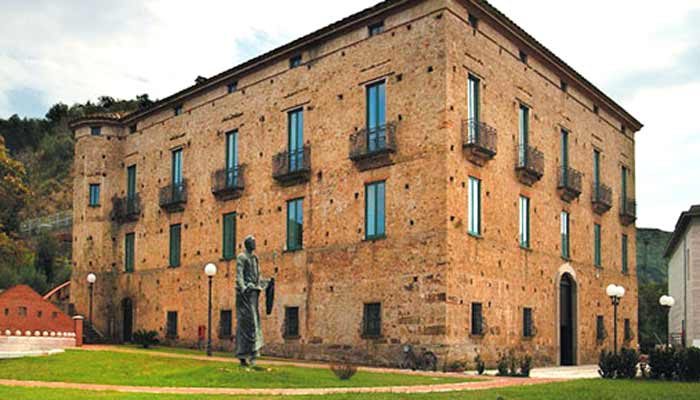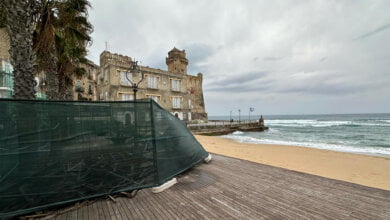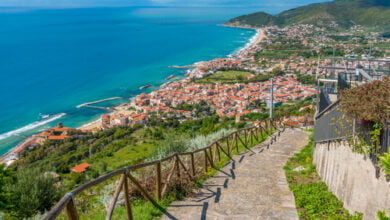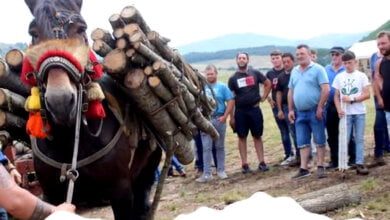
The rise and fall of a proud Italic people – Between the XNUMXth and XNUMXrd centuries BC the Lucanian civilization flourished in southern Italy, a population of Osco-Sabellian stock that settled along the course of the Basento river. This people of Italic origin, related to the Samnites, Sabines and other populations of central-southern Italy, emerged from the valleys of the Apennines to gradually expand into a vast area of Magna Graecia.
With tenacity and belligerence the Lucanians extended their hegemony over a territory between the Sele river in Campania and the Laos river in Calabria, thus dominating the area of present-day Cilento and northern Enotria. A notable extension for those times, conquered with fierce battles against Enotri, Choni, Greeks and Samnites, and strenuously defended from attacks by internal and external enemies.

The Lucanians built numerous fortified urban centers, some of which grew in importance as commercial and political hubs with the coastal Greek colonies. Their mountainous but fertile lands, crossed by rivers and rich in pastures, allowed the development of an agricultural-pastoral economy that accumulated great wealth.
A people of shifting alliances
Over the centuries the Lucanians made and broke alliance pacts with neighboring peoples according to the convenience of the moment. Their foreign policy was characterized by continuous about-faces dictated by the instability of the period and the need to survive in the roar of the battles that bloodied Magna Graecia.

They fought bitterly against the Greeks for possession of the rich colonies of the Ionian coast, inflicting bitter defeats on them, but on other occasions they allied with them against the common enemy of the Samnites. They became bitter adversaries of Rome, tenaciously determined to preserve their independence, but in some situations they were precious allies, providing reinforcements against Pyrrhus or Hannibal.
This ambivalence in the agreements reflected the desperate determination of a proud people forced to navigate terrible adversaries in order to avoid submission. Characters like Pyrrhus or Hannibal took advantage of Lucanian inconstancy to plunder its lands despite being allies. But the Lucanians never gave up, until the clash with Rome definitively destroyed them as an autonomous people.

The end of a proudly identitarian people
The Lucanian identity, so linked to its otherness towards Rome, definitively died out in 82 BC. when, in the battle of Porta Collina, the Lucanian allies of Marius were defeated by Sulla. With the Sullan victory, which marked the conclusion of that bloody civil war fought for control of Rome between Marius and Sulla, the independence of Lucania came to an end.
The Lucanians had chosen to side with Marius and his Italic allies in the conflict, in an extreme attempt to preserve their autonomy and resist the domination of Rome. But the defeat was clear and irreversible. Sulla harshly punished the Lucanians for their rebellion: the lands were confiscated and granted to Roman veterans, the cities lost all autonomy, the Lucanian riches flowed into the treasury of Rome.
Thus began an inexorable process of cultural and political assimilation. The region was reorganized according to the Roman administrative structure, with the creation of the Roman province of Lucania et Bruttium. The Lucanians desperately attempted to preserve their identity, clinging proudly to the traditions and legacy of the past. But Rome's rule proved suffocating and gradually erased its language, culture and institutions.

The proud Lucanians, who had fought for centuries to defend their independence, finally had to surrender to the will of the City, dying as a people absorbed by the tide of Romanization. Only the toponyms of ancient Lucania would have remained to bear witness to that now vanished world.
The rediscovery of Lucanian roots in Cilento
Today, if the original geographical borders of Lucania belong to history, the awareness of a common cultural heritage among the people who inhabited that territory is awakening. Particularly in Cilento, where toponyms such as Vallo della Lucania testify to an ancient bond, the desire to break away from Campania to return to becoming an integral part of Basilicata is growing.

This is based not only on geographical criteria, but above all on the rediscovery of shared historical and cultural roots. This territory, in fact, despite being located in the province of Salerno, was an integral part of the territory of ancient Lucania, as evidenced by the archaeological findings of Lucanian settlements throughout the area.

Not to mention that, from a cultural point of view, it shares with Basilicata traditions, customs, material culture and a dialect of Lucanian origin still widespread in the internal areas. An indissoluble bond that has its roots in the history of this region, before the administrative borders attenuated this belonging.









